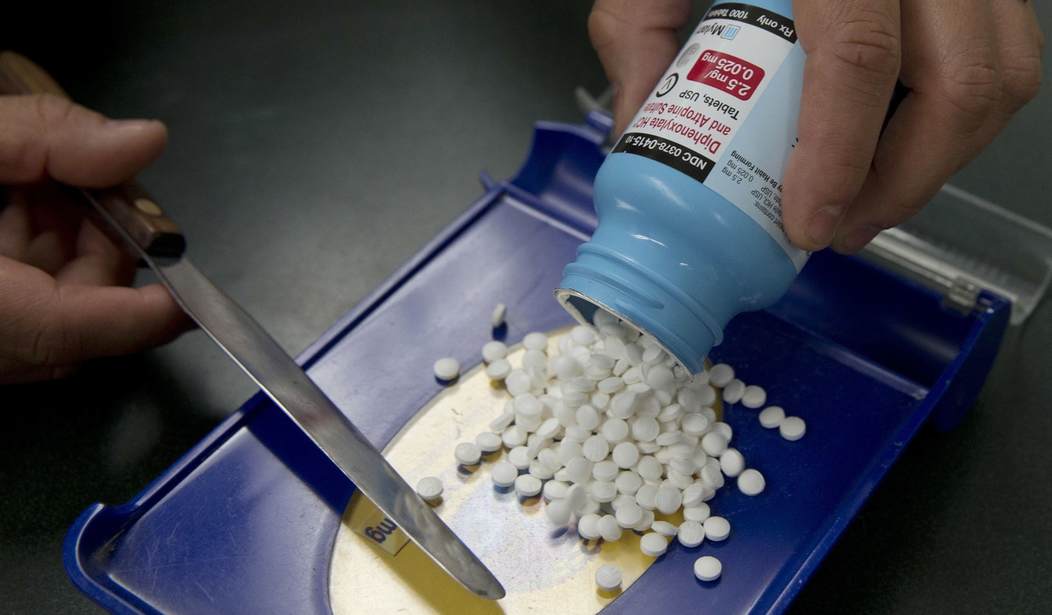Too many politicians are willing to fleece taxpayers for political gain. Obamacare repeal failed last year because lawmakers were afraid of a backlash if they cut spending on Medicaid and Obamacare. Another example is recent proposals in Kentucky, Arkansas and Ohio designed to further expand Medicaid budgets by increasing payments to pharmacies that fill Medicaid prescriptions. Special interests such as pharmacy lobbyists are promoting a bill to require Kentucky to return management of Medicaid drug benefits to state bureaucrats, who have less incentive to control costs.
One of the goals lobbyists hope to achieve is to persuade lawmakers to increase dispensing fees (i.e. counting and bottling the pills). State-run Medicaid drug programs normally pay dispensing fees far higher than the private sector. Every $1 increase in the cost of dispensing a Medicaid prescription in Kentucky is estimated to cost federal and state taxpayers approximately $27 million.
Medicaid is a partnership between federal and state governments. States can tailor the way they manage Medicaid drug benefits to a small degree. One positive thing Obamacare did (yes there was one) was to encourage states to hire private firms to manage Medicaid drug benefits. Regardless of how the program is managed Medicaid enrollees get their drugs at local pharmacies. The pharmacies are then reimbursed for the cost of the drug for each prescription filled, plus a dispensing fee. If the state manages Medicaid drug benefits, the state agency sets fees and reimburses pharmacies under a system called fee-for-service (FFS). Nearly half of states still “carve out” and manage their own drug benefits, normally paying fees higher than private firms. The remaining 26 states hire private firms to administer Medicaid drug benefits, called pharmacy benefit managers (PBMs).
Recommended
Another problem with state-run FFS Medicaid programs is they are also susceptible to lobbyists, who influence lawmakers to intervene in state policies. Here’s the rub: when private companies manage Medicaid drug benefits, politicians cannot as easily meddle with the program and cater to pharmacy owners who lobby for higher fees.
This is important because employers, insurers and PBMs all want to hold costs down. By contrast, some politicians in Kentucky want to increase costs by paying pharmacies hundreds of millions of dollars more. Their ultimate goal is to increase pharmacy profits.
PBMs span multiple states and have numerous public and private clients. These are the same private drug plans that manage Medicare drug benefits for seniors as well as drug benefits for employee health plans and health insurers. In other words, using private firms to manage drug benefits is standard practice in virtually every other health plan. Over the past few years the trend has been for states to move away from FFS and contract with PBMs to save money. However, Kentucky lawmakers are trying to buck this trend for political gain by requiring Medicaid drug benefits to be managed by the state.
PBMs possess far more purchasing power and expertise than any one state agency. They also do a better job at a lower cost than state Medicaid programs. For example, FFS drug prices often differ unnecessarily from one pharmacy to the next. FFS state Medicaid programs arbitrarily pay much higher dispensing fees than would occur in a competitive market. State Medicaid FFS drug programs use low-cost, generic drugs less often than managed drug plans. In addition, unnecessary and redundant prescriptions are often higher for state-managed FFS drug programs.
A 2013 report commissioned by former Alabama Governor Robert Bentley estimated the state could save as much as $35 million per year by turning over management of Medicaid drugs to private firms. A 2016 study estimated the state’s share of savings at more than $500 million over 10 years. The Kentucky governor warned if the state Medicaid agency took over control of managing drugs from PBMs, taxpayer costs would increase costs by $161 million.
The cost of running Medicaid is funded by federal and state taxpayers. Whether Republican or Democrat, most of us believe our tax dollars should be wisely used. Medicaid drug programs are no exception. Too often public programs like Medicaid are allowed to become state & local economic development programs, whose supporters hope to shift some of the costs to taxpayers in other states. This is a bad deal for taxpayers in Kentucky, Arkansas and residents with similar proposals in other states. It is also a bad deal for federal taxpayers who share in the cost.
Devon M. Herrick, PhD is a health economist and policy advisor to the Heartland Institute.

























Join the conversation as a VIP Member